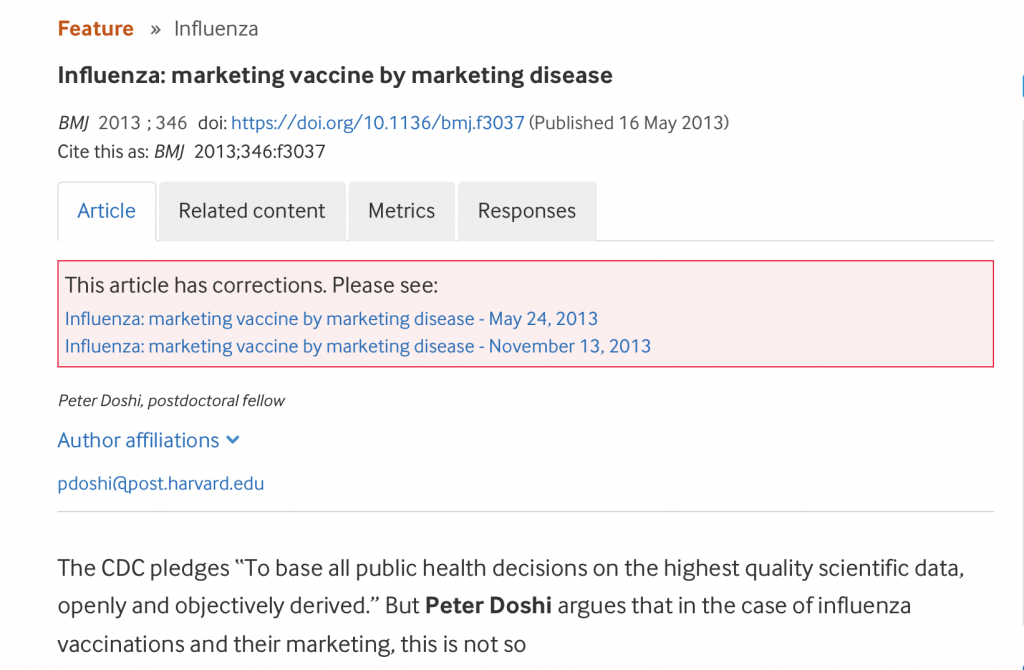“Influenza: Marketing Vaccine by Marketing Disease.” Report on Flu Vaccines in British Medical Journal
Report by John Hopkins Medical School Researcher

The CDC pledges “To base all public health decisions on the highest quality scientific data, openly and objectively derived.” But Peter Doshi argues that in the case of influenza vaccinations and their marketing, this is not so.
Promotion of influenza vaccines is one of the most visible and aggressive public health policies today. Twenty years ago, in 1990, 32 million doses of influenza vaccine were available in the United States. Today around 135 million doses of influenza vaccine annually enter the US market, with vaccinations administered in drug stores, supermarkets—even some drive-throughs.
Promotion of influenza vaccines is one of the most visible and aggressive public health policies today. Twenty years ago, in 1990, 32 million doses of influenza vaccine were available in the United States.
Today around 135 million doses of influenza vaccine annually enter the US market, with vaccinations administered in drug stores, supermarkets—even some drive-throughs. This enormous growth has not been fueled by popular demand but instead by a public health campaign that delivers a straightforward, who-in-their-right-mind-could-possibly-disagree message: influenza is a serious disease, we are all at risk of complications from influenza, the flu shot is virtually risk free, and vaccination saves lives.
Through this lens, the lack of influenza vaccine availability for all 315 million US citizens seems to border on the unethical. Yet across the country, mandatory influenza vaccination policies have cropped up, particularly in healthcare facilities,1 precisely because not everyone wants the vaccination, and compulsion appears the only way to achieve high vaccination rates.2 Closer examination of influenza vaccine policies shows that although proponents employ the rhetoric of science, the studies underlying the policy are often of low quality, and do not substantiate officials’ claims. The vaccine might be less beneficial and less safe than has been claimed, and the threat of influenza appears overstated.
Now we are all “at risk” of serious complications
Influenza vaccine production has grown parallel to increases in the perceived need for the vaccine. In the US, the first recommendations for annual influenza vaccination were made in 1960 (table1).⇓ Through the 1990s, the key objective of this policy was to reduce excess mortality. Because most of influenza deaths occurred in the …
To read the complete report published by the British Medical Journal click here


